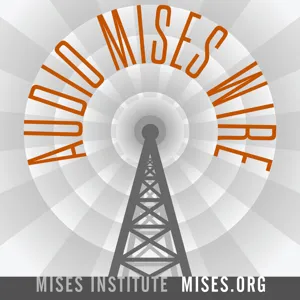Podcast Summary
Natural Law vs. Social Construct: Murray Rothbard argues against the social construct view of human nature and morality, asserting that they are fundamental realities essential to understanding law and ethics.
While some social scientists and philosophers argue that notions of right and wrong are determined by majority opinions and scientific experimentation, rather than a higher law or natural morality, Murray Rothbard rejects this perspective in his work "The Ethics of Liberty." Rothbard asserts that the skepticism towards natural law is misguided and that human nature is not a social construct, but rather a fundamental reality that should inform our understanding of morality and law. Despite the efforts of legal positivists and utilitarians to separate law from morality, Rothbard maintains that morality is an essential aspect of law and should not be dismissed from scientific or intellectual discussions. The debate around decriminalizing assisted suicide in the UK serves as an example of the desire to avoid moral or theological influences in law reform, but Rothbard would argue that such considerations are crucial to understanding the ethical implications of such laws.
Moral arguments in assisted suicide debate: Moral arguments, though not inherently religious, play a significant role in the assisted suicide debate, with opponents focusing on preserving life and potential abuse, and supporters emphasizing autonomy and ending suffering.
The debate over decriminalizing assisted suicide is not just a legal issue, but also a moral one. While some argue that moral considerations should be excluded from the debate due to the secular nature of the law, moral arguments are in fact a significant part of the discussion. Opponents, such as disability groups and professional bodies, use moral arguments against legalization, focusing on the value of preserving life and the potential for abuse. Supporters also use moral arguments, emphasizing the importance of individual autonomy and ending suffering. Therefore, it is essential to recognize that moral arguments are not inherently religious and should not be excluded from the public debate on this complex and contentious issue.
Moral principles and natural law: Moral principles, like 'thou shalt not steal' or 'thou shalt not commit murder,' can be appreciated and embraced independently of religious belief. Natural law is an objective set of principles based on reason and human nature, not rooted in theology or cultural norms.
Moral principles, such as those found in Christianity like "thou shalt not steal" or "thou shalt not commit murder," can be appreciated and embraced independently of religious belief. Richard Dawkins, an atheist, exemplifies this perspective as he identifies as a cultural Christian, expressing fondness for Christian traditions while not subscribing to their religious teachings. This misleads some into assuming that moral principles are rooted in cultural theology, but they are in fact distinct from divine edicts. Rothbard's analysis of natural law further highlights this distinction, emphasizing that natural law is based on reason and human nature, rather than being a set of religious or ideological opinions or cultural norms. Natural law is an objective set of principles that can be understood through reason, and its independence from the question of God's existence is crucial.
Natural Law: Natural law is based on universal and objective principles of human nature and the world, providing guidance for liberty, good, and morally just outcomes.
According to Murray Rothbard, natural law is based on the observable reality of human nature and the world around us. It is not a social construct that can be changed at will, but rather the principles of nature that govern the behavior of all things, including humans. These principles are universal and objective, allowing for the learning and avoidance of mistakes across cultures and societies. Natural law is not influenced by individual opinions or preferences, but rather reflects the essential nature of human beings. Rothbard's use of natural law is to formulate a theory of liberty based on private property, but it also provides guidance on choosing ends and means to achieve good and morally just outcomes. Ultimately, natural law is a reason-based approach to understanding the world and our place in it.
